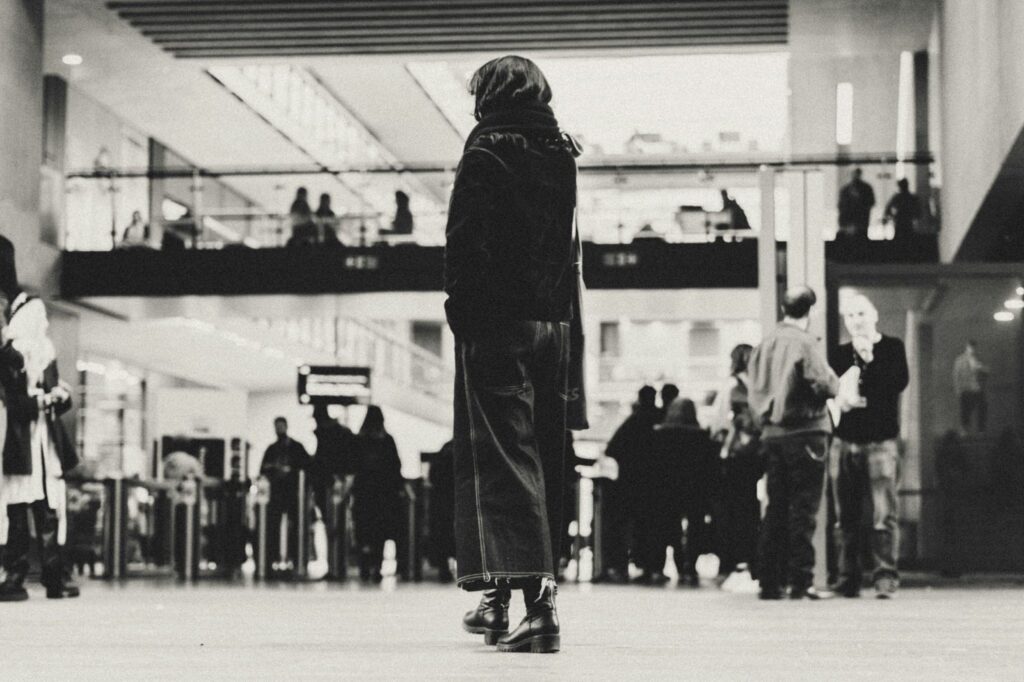It’s Not Feminism They Hate, It’s the Feminists

|
Getting your Trinity Audio player ready...
|
When your presence becomes a provocation before your ideas are even heard.
I walked into an advocacy space expecting what Audre Lorde calls a shared commitment to survival. Instead, the moment they found out I was a feminist, the air shifted.
I wasn’t treated like a fellow advocate.
I became a symbol.
A stereotype waiting to be confirmed.
A feminist who must defend feminism and feminists on command.
From the night I arrived until the afternoon I left, I wasn’t spoken to about feminism; I was spoken at.
“I didn’t need to say anything feminist. My existence was the provocation.”
It hurt because I went there hoping to exhale.
Instead, I was holding my breath again.

Suddenly, I Wasn’t Oluwafunmbi. I Was “The Feminist.”
Identity became restrictive the moment they labelled me. Every interaction revolved around the caricature of a feminist they carried in their heads.
Everyone else got to be complex. I became an ideological checkpoint.
They weren’t curious about what I stand for. They were waiting for me to contradict myself.
What made it worse? I didn’t even need to say anything feminist. My existence was the provocation.
No one else faced interrogation, at least not publicly, not in my presence. Only me. Only the feminist.
Patriarchy Wearing an Activist T-Shirt
Three predictable patterns:
1️⃣ The Respectability Police
“Those Nigerian feminists aren’t practicing feminism.”
A pause. A smirk. Waiting for me to say: I’m not like those bitter ones. Gentle. Polite. Non-threatening.
2️⃣ The Male-Centred Missionaries
“Let’s focus on men first, women will benefit later.”
Convenient, isn’t it? Liberation, but only if women wait their turn.
3️⃣ The Joke Format
Ha-ha feminist. Ha-ha angry women. Then silence. Eyes on me. Would I laugh along? Or prove their script right?
Every interaction felt rehearsed, a performance patriarchy wrote for them. A script they followed without skipping a line.
And I kept thinking: These are advocates. They should know better than recycled misogyny from Twitter threads in 2018.
Outdated Arguments in a Supposedly Progressive Space
They told me feminists should be calm. Gentle. Pleasant. Grateful.
I expected better. People with access to knowledge. People who said they are advocates. People who said they care.
But their arguments were intellectually lazy, the same tired lines I confronted years ago when I was sixteen, arguing with men who hated feminism on principle.
They claimed to know “the real feminism” while refusing to read a single feminist theorist. Google had become their syllabus. And feminists were expected to apologise for studying.
When Emotion Is Used as Evidence Against You
Once agitation showed in my body language, it became proof:
“See? Feminists are too emotional.”
As if detachment equals intelligence.
As if my rage against oppression is an inconvenience.
As if my pain discredits my truth.
Audre Lorde said:
“Our feelings are our most genuine paths to knowledge.”
Yet in their hands, emotion became a weapon.
A trap they were sure I would fall into.
A scene they had rehearsed long before I walked into that room.

The Psychological Implications
This was not abstract theory.
This was humiliation wearing a friendly face.
Here’s what was happening beneath the surface:
- Identity Threat: Pressure to shrink into the “acceptable feminist.”
- Stereotype Threat: Passion treated as aggression.
- Social Othering: Present, yet singled out as foreign.
- Epistemic Injustice: My knowledge was dismissed because it came from a feminist.
- Emotional Labour Overload: Everyone else existed. I had to defend my humanity.
Fatigue like this doesn’t fade when you leave the room. It follows you home. It lingers in the chest. It steals your rest.
The Hypocrisy Is What Bruised the Most
If you claim justice yet fear women advocating for themselves… what exactly are you fighting?
If feminist anger unsettles you more than patriarchy does… your comfort is aligned with power, not liberation.
If safety requires me to smile through disrespect… the space was never safe.
Why Is Feminism the Only Movement Required to Comfort Its Oppressor?
Feminists are told:
- Don’t upset men
- Don’t speak too sharply
- Don’t demand too strongly
- Don’t threaten the status quo
Fight inequality, but do it beautifully. Quietly. Gratefully.
Bell Hooks reminds us:
“Patriarchy has no gender.”
Neither does complicity. And advocates are not immune to either.
Bitterness Is Not a Character Flaw
Bitterness is memory.
Bitterness is a boundary.
Bitterness says: This harmed me. I remember.
Activism without memory is decoration.
Pretty. Pointless.
I refuse decorative feminism.

My Final Question
Why does everyone want feminism… without feminists?
I left that space exhausted. Angry. Hollowed.
They didn’t see Oluwafunmbi. They didn’t see a fellow advocate.
They saw a threat. A warning. A stereotype to manage.
And still — I am a feminist.
Not the kind they can control.
Not the kind who apologises for existing.
Not the kind they bully into silence.
If my feminism makes you uncomfortable, good.
Let it.
Discomfort is the first crack in denial, and denial is what keeps oppression alive.






